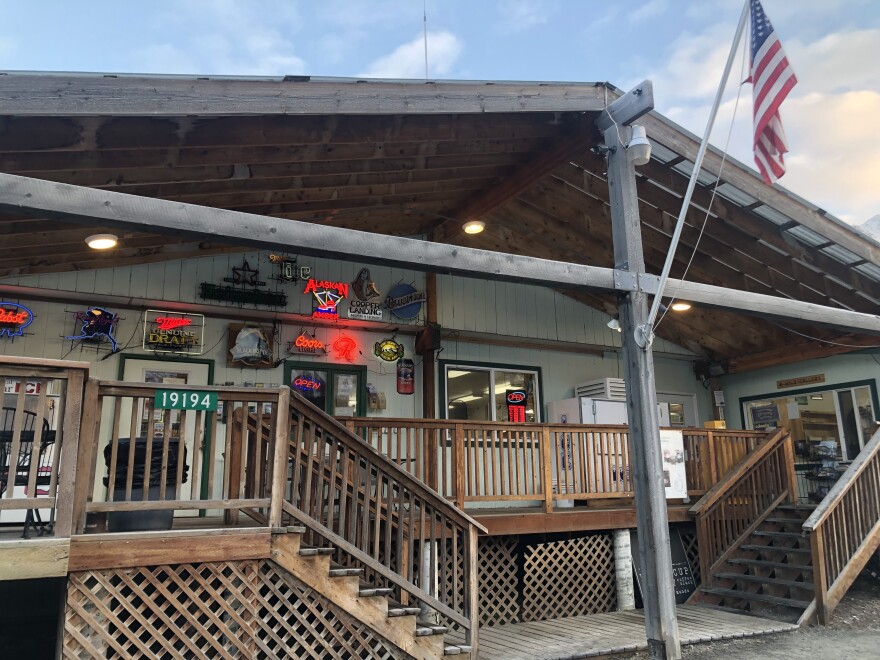Staffing shortages have plagued businesses across the country since the start of the COVID-19 pandemic. But those shortages are especially harsh in small, rural communities, where employees are already hard to come by.
In Cooper Landing, they’re forcing local businesses to cut hours to avoid burning out their employees during the busy summer season.
“The world is coming to the point where it’s like you’d better have some patience, because nobody’s out there working and the ones that are out there working are trying their best," said Cheryle James, owner of Cooper Landing’s popular convenience store Wildman’s.
James has been struggling to get help since the summer of 2020, when potential staff members were first becoming hard to find and the rate of employee turnover started to pick up.
Wildman’s has since increased its wages to attract more employees. But she said there just aren’t enough people to keep the store open for its longer, summer hours.
That’s created a conundrum: James is spending more on wages and bringing in less in revenue.
“The revenue is not as high, yet I’m paying out more in pay. Which I don’t mind, but if you could find enough people, you could create more revenue," she said.
Wildman’s is a popular Sterling Highway stop year round.
In the summer, traffic to the store booms, between the anglers who stop by for shuttle rides and hikers who come in for ice cream cones.
Ice cream is one of Wildman’s specialities. James said she likes to keep a large staff on hand in the evenings to serve up scoops in the summer.
But she said the store’s breakfast items are picking up in popularity, too. And she said fulfilling the all-day demands is coming at the cost of employees' well-being.
“You know, you don’t want to burn anybody out — but holy cow," she said. "I mean, everybody is burnt out now already, by the middle of July.”
James said she has 10 to 12 year-round employees who work through the winter and a dozen additional seasonal employees in the summer. But she said turnover has been high, with some employees simply disappearing rather than formally quitting. During the summer of 2020, James says she went through around 50 employees — people weren’t even there long enough for her to get to know them.
“It makes it hard because you don’t have any continuity with training, or understanding, or that type of thing," James said.
There are a couple issues that result from quick employee turnover, James said.
One of the biggest is the cost of on-boarding and training a constant stream of new employees. James estimates it costs between $200 and $300 to train each new staff member, between advertising an open position and interviewing candidates, plus the hours of training, background checks and material costs, like training manuals and employee t-shirts. That’s not to mention all the time it takes just to coordinate that much hiring.
James also said her staff is trending much older than usual. She only has two employees currently who are under the age of 30.
And James said it’s not just Wildman’s — most of the businesses in the Cooper Landing area are hurting for employees.
James is president of the Cooper Landing Chamber of Commerce. She said the Princess Lodge, Gwin’s Lodge, Sunrise Inn and other hospitality businesses are all strapped for staff, and some have also had to cut hours. James said the demand for housekeepers in particular is so high that she just laughs when people tell her they’re looking for someone to clean.
One solution to the lack of local employees is looking outside the U.S.
James has worked with students on J1 visas — the non-immigrant visas that allow college students to live in the U.S. to work and study. However, these visa-holders have to return to their home countries after finishing their exchange programs, which doesn’t help with the high rates of turnover.
Now, she’s looking toward the H-2B visa program, where nonagricultural workers from outside the U.S. can come here seasonally to work.
This year, James said, she got bogged down in the paperwork of the program, but she knows she’ll have to use it next year.
For now, she said business owners in the area are looking forward to the end of summer, even though it's their most lucrative season.
“Come October, it’s like ‘Ahhh, we made it through another year,’" she said. "And then by February, March, it’s like 'I wish they’d all come back.”’
She said they’re just hoping to make it through September without burning out their employees.





